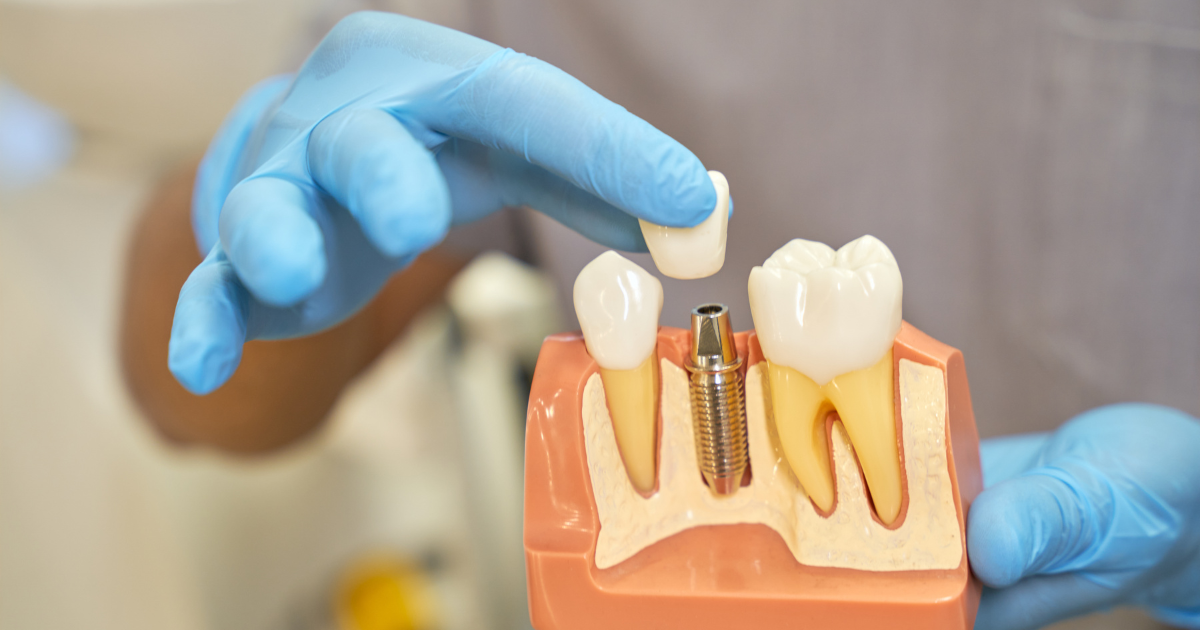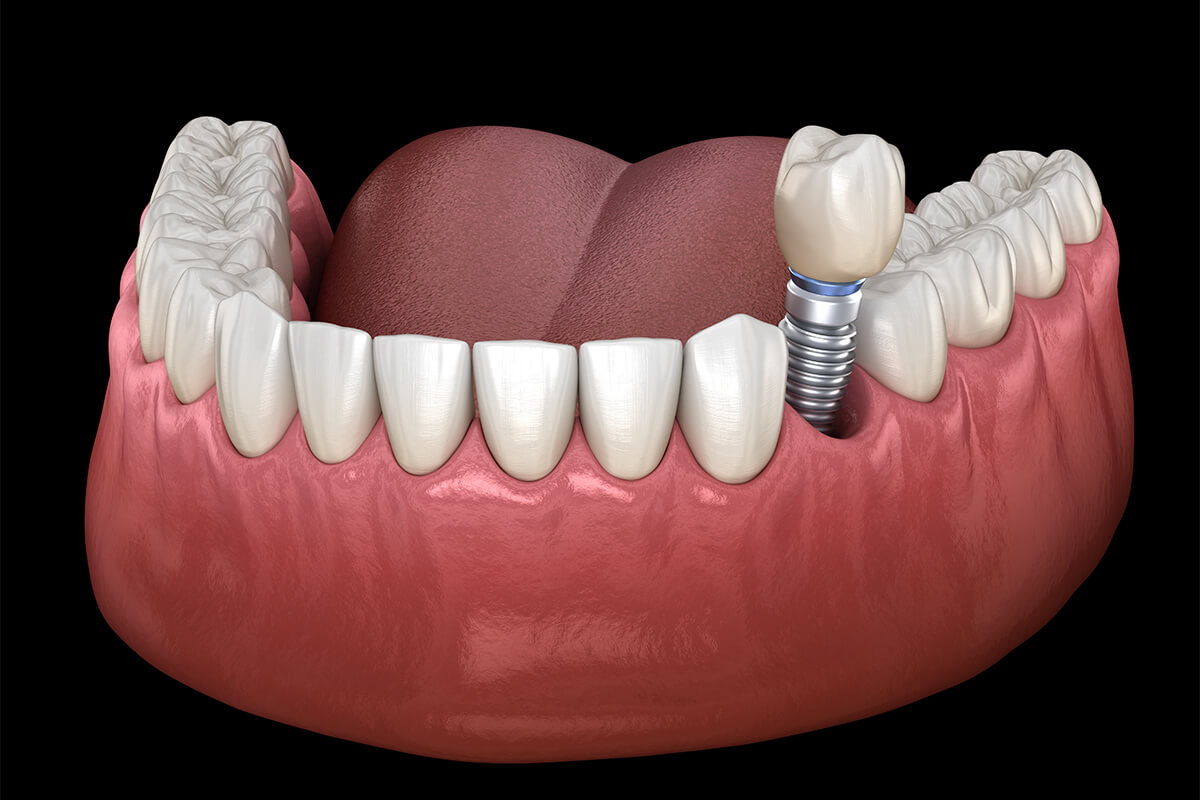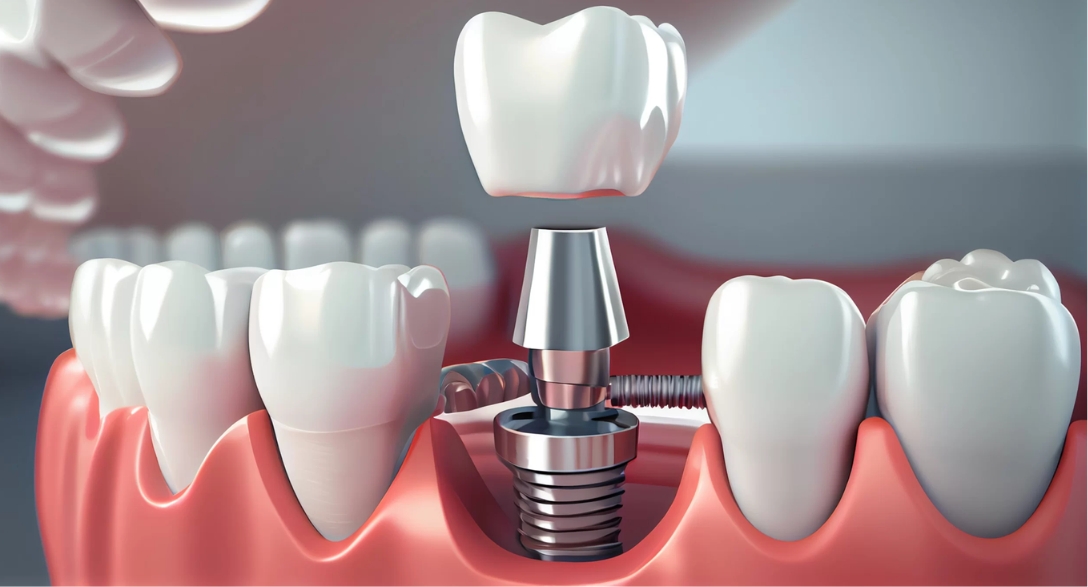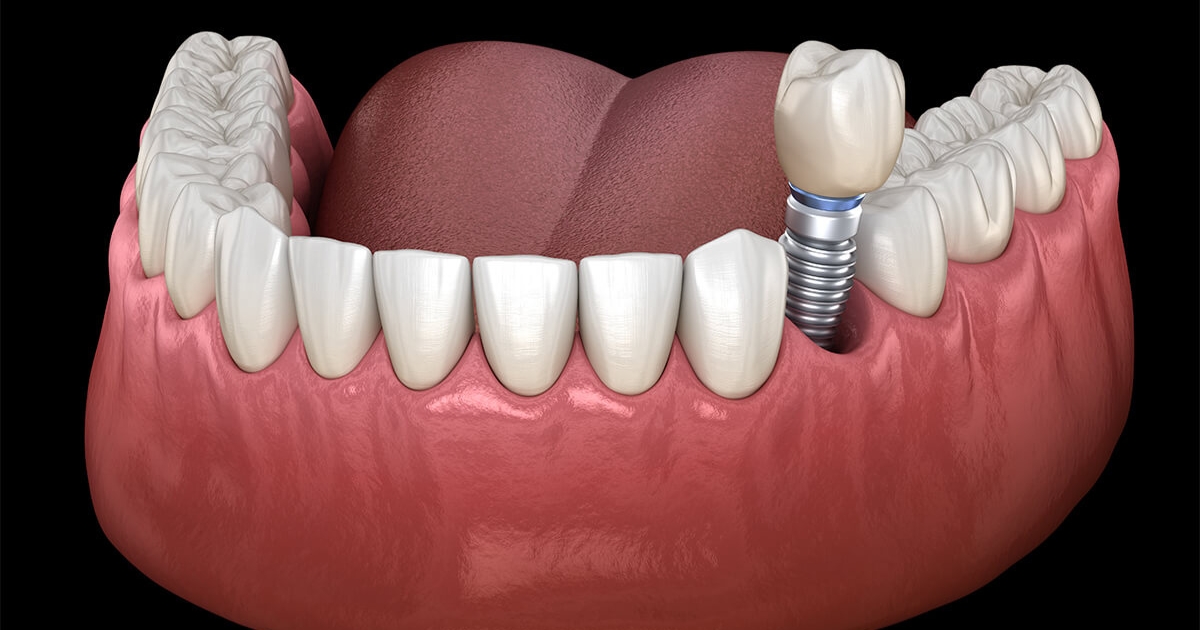Call Us Today 817-737-7668

When a major dental accident leaves you with damaged or missing teeth, choosing the best restoration option is essential.
Whether it’s due to a sports injury, car accident, or another unexpected event, a traumatic dental injury can impact your smile, speech, and confidence.
Dental implants are widely regarded as the top choice for tooth replacement after severe dental injuries. But what makes dental implants stand out compared to other restoration options?
What Are Dental Implants and How Do They Work?
Dental implants are artificial tooth roots made from biocompatible titanium, surgically inserted into the jawbone to support a replacement tooth. Over time, the implant integrates with the bone, providing a stable base for crowns, bridges, or even dentures. This durable solution functions looks, and feels like natural teeth, making it an excellent option for restoring your smile after major dental accidents.
Here’s why dental implants are often the best restoration choice after significant dental trauma:
1. Stability and Strength That Lasts
One of the most compelling reasons to consider dental implants after a major accident is their remarkable stability. Unlike other dental restorations, such as dentures or bridges, implants are anchored directly into the jawbone. This creates a secure foundation, allowing you to eat, talk, and smile with confidence.
- Long-lasting: Implants can last a lifetime with proper care.
- Resistant to wear: Titanium is incredibly durable and integrates well with bone.
- Enhanced bite force: Implants restore 80-100% of your natural bite force, far exceeding the strength of dentures or bridges.
2. Natural Look and Feel
A well-placed implant not only functions like a natural tooth but also looks the part. Dental professionals will customize the shape, color, and alignment of the crown to blend seamlessly with your natural teeth. This natural appearance is especially important if you’ve lost front teeth in an accident.
- Aesthetic appeal: Custom crowns are designed to match your natural teeth.
- No shifting: Implants are securely anchored, preventing the slipping or shifting often associated with dentures.
- Realistic chewing: Implants mimic the experience of chewing with real teeth, giving you comfort and confidence.
3. Preserving Jawbone Health
Following a major dental injury, jawbone deterioration is a major concern, especially if teeth are missing for an extended period. When you lose a tooth, the bone in the empty socket starts to deteriorate, eventually leading to bone loss that can impact your facial structure. Dental implants are the only restoration option that actively stimulates and preserves the jawbone.
- Bone stimulation: Implants encourage natural bone regeneration by mimicking a tooth root.
- Preventing facial sagging: Bone retention preserves the structure of your face and helps prevent premature aging.
- Support for surrounding teeth: Implants fill gaps, preventing adjacent teeth from shifting and creating alignment issues.
4. High Success Rate and Longevity
Dental implants are known for their high success rate, particularly in healthy patients with good oral hygiene. After the implant fuses with your bone, it provides a permanent solution that typically outlasts other dental restoration options.
- Proven success: Implants have a success rate of over 95% for most candidates.
- Less maintenance: With proper oral hygiene, dental implants require minimal special care beyond regular brushing and flossing.
- Greater investment value: Although the initial cost may be higher, implants’ durability and minimal upkeep make them a cost-effective choice in the long run.
5. Confidence in Everyday Activities
People often feel self-conscious or worry about their dentures or bridges slipping when they talk, laugh, or eat. With dental implants, you don’t have to think twice about your teeth. Implants stay firmly in place, enabling you to enjoy life with complete freedom.
- No dietary restrictions: You can enjoy all your favorite foods without limitations.
- Unrestricted speech: Because implants feel like natural teeth, you can speak without worrying about slurring or lisping.
- Boosted confidence: Knowing your teeth are secure gives you confidence in social situations.
6. Better Oral Health with No Extra Work
Unlike bridges, which require altering neighboring teeth for support, implants leave surrounding teeth unaffected. They protect your remaining natural teeth and help you maintain a healthy, balanced bite.
- Protects natural teeth: No need to file down adjacent teeth as with a bridge.
- Improved hygiene: Implants make it easy to maintain oral health, as you can brush and floss normally.
- Reduced risk of cavities: Implants are not susceptible to decay like natural teeth, reducing the risk of cavities.
7. Comfortable and Convenient
Once healed, implants feel as comfortable as natural teeth. There’s no need to remove or adjust them, and they don’t require adhesives or overnight soaking.
- Hassle-free: Implants are a permanent solution that won’t need constant attention.
- No discomfort: Implants won’t pinch gums or cause soreness like ill-fitting dentures.
- Simple care routine: Maintain them like your natural teeth for ease and simplicity.
Who Is a Good Candidate for Dental Implants?
Most individuals who’ve experienced a major dental accident are excellent candidates for dental implants. However, the ideal candidate should:
- Have good overall oral health and sufficient jawbone density.
- Be committed to maintaining excellent oral hygiene.
- Be free of certain conditions that might impede healing, such as uncontrolled diabetes or severe gum disease.
In cases where bone density is lacking, a bone graft may be necessary to create a strong foundation for the implant. Consult with a skilled periodontist to assess your eligibility for dental implants after a major accident.
What to Expect During the Implant Procedure?
The dental implant process involves several steps to ensure the best results:
- Initial consultation: The dental implant periodontist evaluates your jawbone and discusses treatment options.
- Implant placement: The implant is surgically inserted into the jawbone and allowed to heal, typically over a few months.
- Crown placement: Once the implant fuses with the bone, an abutment is attached, followed by a custom-made crown to restore your smile.
This multi-step process ensures a secure, natural-looking replacement that’s worth the investment.
Common Concerns About Dental Implants
Some individuals may have concerns about the cost, recovery time, or discomfort associated with dental implants. While implants require a surgical procedure, the benefits they offer in stability, aesthetics, and functionality make them well worth the initial investment.
If you’ve experienced a major dental accident and are considering your options, talk with your dental professional about how dental implants could be the best solution for you.
Why Dental Implants Stand Out as the Ideal Restoration Choice?
Dental implants excel as a restorative option for those recovering from significant dental trauma. Their durability, natural appearance, and ability to preserve bone structure make them an outstanding choice for patients aiming to restore both function and aesthetics. If a dental accident has impacted your smile, a dental implant offers not only a lasting solution but also a pathway to reclaiming confidence, comfort, and a sense of normalcy in daily life.
Dental implants are changing lives for those who’ve experienced major dental accidents, providing a reliable path to a full, radiant smile that can withstand the test of time. If you’re ready to explore this transformative solution, reach out to your dental professional and start the journey toward a complete, healthy smile today.





